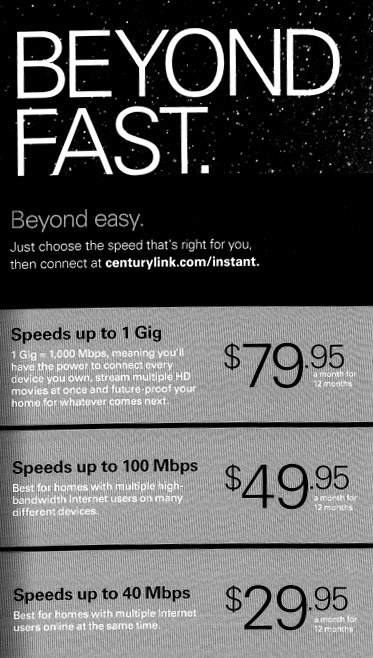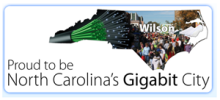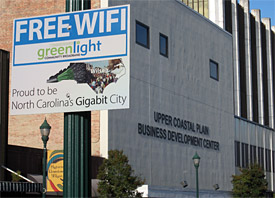Chanute City Commission Approves FTTH Plan
Chanute City Commission decided on June 9th to take the next step to bring ftth to the community; Commissioners voted unanimously to pursue and finalize funding to deploy a municipal network.
The City's current fiber network provides connectivity to schools, hospitals, electric utility and municipal facilities, the local college, and several businesses. Chanute has worked since 1984 to incrementally grow its network with no borrowing or bonding. Plans to expand the publicly owned infrastructure to every property on the electric grid began to take shape last year.
At a work session in May, Director of Utilities Larry Gates presented several possible scenarios, associated costs, and a variety of payback periods. The favored scenario includes Internet only from the City, with video and voice to be offered by a third party via the network. Residential symmetrical gigabit service will range from $40 - $50 depending on whether or not the subscriber lives in the city limits. Commercial service will be $75 per month. Advanced metering infrastructure will also be an integral part of the network.
The Commission authorized the pursuit of up to $14 million to get the project rolling.






 The promotional sheet claims CenturyLink will offer speeds "up to" 1 Gig for $79.95/month for 12 months. 100 Mbps runs $49.95 and 40 Mbps is $29.95 - each for 12 months. No mention of upload speeds but CenturyLink has demonstrated a real aversion to symmetry so users can expect far slower upstream than what modern municipal networks and Google fiber deliver.
The standard operating procedure in apartment buildings will be for CenturyLink to try to lock up the internal wiring to buildings and deny it to competitors. FCC rules make exclusive agreements with landlords unenforceable, but there are a host of tricks that incumbents use to prevent any competition and landlords getting a kickback often have little reason to encourage competition.
The CenturyLink copy notes that its fiber optic GPON option is "up to" more than 92 percent energy efficient than cable modem Internet access. I have to wonder how it compares to DSL energy efficiency and whether that number holds up better than the "up to" 12 Mbps claims they make on DSL circuits that seldom peak at 5 Mbps.
At any rate, it is more than we can expect in the many communities CenturyLink is serving where there the local government have done nothing to spur competition by investing in publicly owned assets that could form a municipal network or be used to entice independent service providers to enter the market. In particular, I would be curious where else CenturyLink is rolling out fiber to buildings without any upfront charges.
The promotional sheet claims CenturyLink will offer speeds "up to" 1 Gig for $79.95/month for 12 months. 100 Mbps runs $49.95 and 40 Mbps is $29.95 - each for 12 months. No mention of upload speeds but CenturyLink has demonstrated a real aversion to symmetry so users can expect far slower upstream than what modern municipal networks and Google fiber deliver.
The standard operating procedure in apartment buildings will be for CenturyLink to try to lock up the internal wiring to buildings and deny it to competitors. FCC rules make exclusive agreements with landlords unenforceable, but there are a host of tricks that incumbents use to prevent any competition and landlords getting a kickback often have little reason to encourage competition.
The CenturyLink copy notes that its fiber optic GPON option is "up to" more than 92 percent energy efficient than cable modem Internet access. I have to wonder how it compares to DSL energy efficiency and whether that number holds up better than the "up to" 12 Mbps claims they make on DSL circuits that seldom peak at 5 Mbps.
At any rate, it is more than we can expect in the many communities CenturyLink is serving where there the local government have done nothing to spur competition by investing in publicly owned assets that could form a municipal network or be used to entice independent service providers to enter the market. In particular, I would be curious where else CenturyLink is rolling out fiber to buildings without any upfront charges.


 "We had to choose an area that could offer a low cost of doing business, while delivering an infrastructure better than that of other states and countries," wrote Mr. Kalinoski, a three-time, award nominee for his special effects contributions to Black Swan and LOST, the Final Season.
"We had to choose an area that could offer a low cost of doing business, while delivering an infrastructure better than that of other states and countries," wrote Mr. Kalinoski, a three-time, award nominee for his special effects contributions to Black Swan and LOST, the Final Season.

 And it has, even for young entrepreneurs elsewhere in the state. For a tech entrepreneur like Dan Holt from Wake Forest, renting space at this Wilson-based incubator lets him be part of the future, and to experience the possible which is impossible at his home in Wake Forest only 30 miles away. Dan is a self-described techie for a local Raleigh defense subcontractor but he likes to be known as founder of the Wake Forest Fiber Optic Initiative.
And it has, even for young entrepreneurs elsewhere in the state. For a tech entrepreneur like Dan Holt from Wake Forest, renting space at this Wilson-based incubator lets him be part of the future, and to experience the possible which is impossible at his home in Wake Forest only 30 miles away. Dan is a self-described techie for a local Raleigh defense subcontractor but he likes to be known as founder of the Wake Forest Fiber Optic Initiative.
